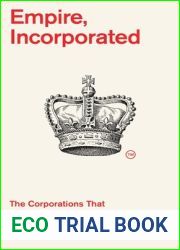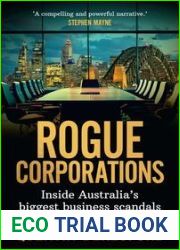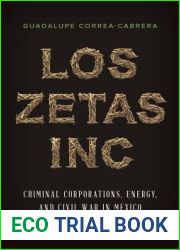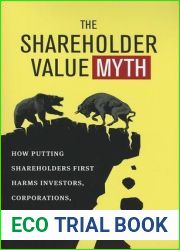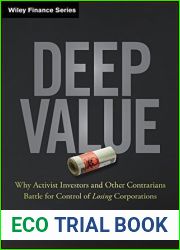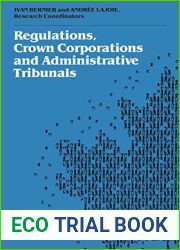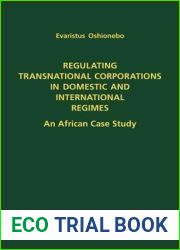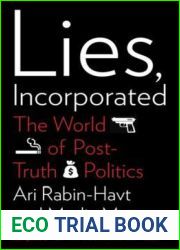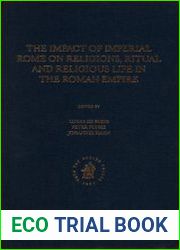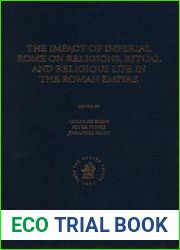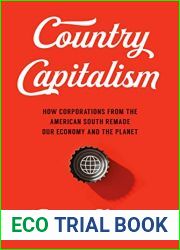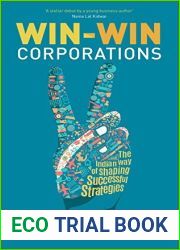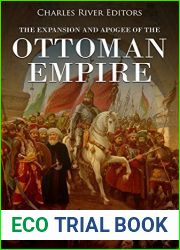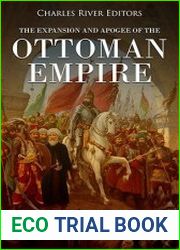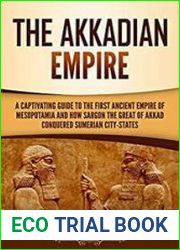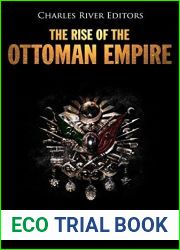
BOOKS - Empire, Incorporated: The Corporations That Built British Colonialism

Empire, Incorporated: The Corporations That Built British Colonialism
Author: Philip J. Stern
Year: May 16, 2023
Format: PDF
File size: PDF 4.9 MB
Language: English

Year: May 16, 2023
Format: PDF
File size: PDF 4.9 MB
Language: English

Empire Incorporated: The Corporations That Built British Colonialism In his groundbreaking book, Empire Incorporated: The Corporations That Built British Colonialism, historian Philip Stern presents a remarkable contribution to the current global debate about empire and its legacy. By placing the corporation at the heart of British colonialism, Stern challenges the conventional wisdom that the Crown was the driving force behind the expansion of the British Empire. Instead, he argues that companies built and governed global empires, making claims over territory and peoples while ensuring that British and colonial society were invested in their ventures. This elusive public-private entity, both centralized and decentralized, immortal and precarious, raised questions about public and private power that are just as troubling today as they were four hundred years ago. Across four centuries, from Ireland to India, the Americas to Africa, and Australia, British colonialism was characterized by the rise of corporations, which were frequently controversial, often in debt, and prone to failure. However, these corporations were not simply tools of the state but rather key players in global expansion and administration. As Stern argues, venture colonialism did not cease with the end of empire; its legacies continue to raise questions about corporate power that are relevant today. Stern's thesis challenges the traditional view of history, where corporations played a supporting role in exchange for commercial monopolies. Instead, he demonstrates that corporations took the lead in global expansion and administration, complicating the supposed distinction between private enterprise and the state. Through this innovative approach, Stern offers a new history of the British Empire and a new history of the corporation.
Empire Incorporated: The Corporations That Built British Colonialism В своей новаторской книге Empire Incorporated: The Corporations That Built British Colonialism историк Филип Стерн представляет замечательный вклад в текущие глобальные дебаты об империи и ее наследии. Поставив корпорацию в центр британского колониализма, Стерн бросает вызов расхожему мнению, что Корона была движущей силой экспансии Британской империи. Вместо этого он утверждает, что компании строили и управляли глобальными империями, предъявляя претензии на территорию и народы, обеспечивая при этом, чтобы британское и колониальное общество инвестировало в их предприятия. Это неуловимое государственно-частное образование, как централизованное, так и децентрализованное, бессмертное и ненадежное, подняло вопросы о государственной и частной власти, которые сегодня вызывают такое же беспокойство, как и четыреста лет назад. На протяжении четырех столетий, от Ирландии до Индии, от Северной и Южной Америки до Африки и Австралии, британский колониализм характеризовался ростом корпораций, которые часто были спорными, часто в долгах и склонны к провалу. Однако эти корпорации были не просто инструментами государства, а скорее ключевыми игроками в глобальной экспансии и администрации. Как утверждает Стерн, венчурный колониализм не прекратился с концом империи; его наследие продолжает поднимать вопросы о корпоративной силе, которые актуальны сегодня. Тезис Стерна бросает вызов традиционному взгляду на историю, где корпорации играли вспомогательную роль в обмен на коммерческие монополии. Вместо этого он демонстрирует, что корпорации взяли на себя ведущую роль в глобальной экспансии и администрировании, усложняя предполагаемое различие между частным предпринимательством и государством. Благодаря этому инновационному подходу Стерн предлагает новую историю Британской империи и новую историю корпорации.
Empire Incorporated : The Corporations That Built British Colonialism Dans son livre pionnier Empire Incorporated : The Corporations That Built British Colonialism, l'historien Philip Stern apporte une contribution remarquable au débat mondial actuel sur le colonialisme l'empire et son héritage. En plaçant la société au centre du colonialisme britannique, Stern récuse l'opinion divergente que la Couronne a été le moteur de l'expansion de l'Empire britannique. Au lieu de cela, il affirme que les entreprises ont construit et gouverné des empires mondiaux, faisant valoir des revendications sur le territoire et les peuples, tout en veillant à ce que la société britannique et coloniale investisse dans leurs entreprises. Cet enseignement public-privé insaisissable, à la fois centralisé et décentralisé, immortel et peu fiable, a soulevé des questions sur le pouvoir public et privé qui suscitent aujourd'hui la même inquiétude qu'il y a quatre cents ans. Pendant quatre siècles, de l'Irlande à l'Inde, des Amériques à l'Afrique et à l'Australie, le colonialisme britannique a été caractérisé par la croissance de sociétés souvent controversées, souvent endettées et susceptibles d'échouer. Mais ces sociétés n'étaient pas seulement des instruments de l'État, mais plutôt des acteurs clés de l'expansion mondiale et de l'administration. Selon Stern, le colonialisme de risque n'a pas cessé avec la fin de l'empire ; son héritage continue de soulever des questions sur le pouvoir des entreprises qui sont d'actualité aujourd'hui. La thèse de Stern remet en question la vision traditionnelle de l'histoire, où les sociétés ont joué un rôle de soutien en échange de monopoles commerciaux. Au lieu de cela, il démontre que les entreprises ont pris la tête de l'expansion mondiale et de l'administration, compliquant la distinction supposée entre l'entreprise privée et l'État. Grâce à cette approche innovatrice, Stern propose une nouvelle histoire de l'Empire britannique et une nouvelle histoire de la société.
Empire Incorporated: The Corporations That Built British Colonialism En su libro pionero Empire Incorporated: The Corporations That Built British Coorporated el lonialismo del historiador Philip Stern representa una notable contribución al actual debate mundial sobre el imperio y su legado. Al poner a la corporación en el centro del colonialismo británico, Stern desafía la opinión difusa de que la Corona fue la fuerza impulsora de la expansión del Imperio británico. En cambio, sostiene que las empresas construyeron y administraron imperios globales, haciendo reclamos sobre el territorio y los pueblos, al tiempo que asegura que la sociedad británica y colonial inviertan en sus negocios. Esta escurridiza educación público-privada, tanto centralizada como descentralizada, inmortal y poco fiable, ha planteado interrogantes sobre el poder público y privado que hoy causan tanta preocupación como hace cuatrocientos . Durante cuatro siglos, desde Irlanda a la India, desde América hasta África y Australia, el colonialismo británico se ha caracterizado por el crecimiento de corporaciones que a menudo han sido controvertidas, a menudo en deuda y propensas al fracaso. n embargo, estas corporaciones no eran simplemente instrumentos del Estado, sino más bien actores clave en la expansión y administración global. Como afirma Stern, el colonialismo de riesgo no cesó con el fin del imperio; su legado sigue planteando interrogantes sobre el poder corporativo que son relevantes en la actualidad. La tesis de Stern desafía la visión tradicional de la historia, donde las corporaciones jugaban un papel de apoyo a cambio de monopolios comerciales. En cambio, demuestra que las corporaciones han tomado la delantera en la expansión y administración global, complicando la supuesta distinción entre la empresa privada y el Estado. Gracias a este enfoque innovador, Stern ofrece una nueva historia del Imperio Británico y una nueva historia de la corporación.
Empire Incorporated: The Corporation That Built British Colonialism Em seu livro inovador Empire Incorporated: The Corporations That Built British Colonialism, o historiador Philip Stern apresenta uma contribuição maravilhosa ao atual debate global sobre o império e a herança dela. Ao colocar a corporação no centro do colonialismo britânico, Stern desafia a crença de que a Coroa foi o motor da expansão do império britânico. Em vez disso, afirma que as empresas construíram e administraram impérios globais, reivindicando território e povos, garantindo que as sociedades britânica e colonial investissem em suas empresas. Esta educação público-privada escancarada, centralizada e descentralizada, imortal e pouco confiável, levantou questões sobre o poder público e privado, que hoje são tão preocupantes quanto há quatrocentos anos. Durante quatro séculos, da Irlanda à Índia, das Américas à África e à Austrália, o colonialismo britânico foi caracterizado pelo crescimento de corporações frequentemente disputadas, muitas vezes endividadas e propensas ao fracasso. No entanto, essas corporações não eram apenas ferramentas do Estado, mas também atores fundamentais na expansão e administração globais. Como afirma Stern, o colonialismo de risco não parou com o fim do império; o seu legado continua a levantar questões sobre o poder corporativo que são atuais hoje. A tese de Stern desafia a visão tradicional da história, onde as corporações desempenharam um papel de apoio em troca de monopólios comerciais. Em vez disso, demonstra que as empresas assumiram um papel de liderança na expansão e administração globais, tornando mais difícil a suposta distinção entre o empreendimento privado e o governo. Com esta abordagem inovadora, Stern propõe uma nova história do Império Britânico e uma nova história da corporação.
Empire Incorporated: The Corporations That Built British Colonialism Nel suo libro innovativo Empire Incorporated: The Corporations That Built British Colonialism, lo storico Philip Stern offre un contributo eccezionale al dibattito globale in corso sull'impero e sull'impero la sua eredità. Mettendo la società al centro del colonialismo britannico, Stern sfida la convinzione che Corona sia stata il motore dell'espansione dell'impero britannico. Egli sostiene invece che le aziende hanno costruito e gestito imperi globali, rivendicando il territorio e le nazioni, garantendo al contempo che le società inglesi e coloniali investano nelle loro imprese. Questa insanabile istruzione pubblico-privata, sia centralizzata che decentralizzata, immortale e inaffidabile, ha sollevato domande sul potere pubblico e privato che oggi destano la stessa preoccupazione di quattrocento anni fa. Per quattro secoli, dall'Irlanda all'India, dall'America del Nord e del Sud all'Africa e all'Australia, il colonialismo britannico è stato caratterizzato da una crescita di aziende spesso controverse, spesso indebitate e inclini al fallimento. Ma queste società non erano solo strumenti dello stato, ma più che altro attori chiave nell'espansione globale e nell'amministrazione. Come sostiene Stern, il colonialismo a rischio non si fermò con la fine dell'impero; la sua eredità continua a sollevare questioni sul potere aziendale oggi rilevanti. La tesi di Stern sfida la tradizionale visione di una storia in cui le aziende hanno avuto un ruolo di supporto in cambio di monopoli commerciali. Dimostra invece che le aziende hanno assunto un ruolo di primo piano nell'espansione e nell'amministrazione globale, rendendo più difficile la presunta distinzione tra impresa privata e Stato. Grazie a questo approccio innovativo, Stern offre una nuova storia dell'impero britannico e una nuova storia aziendale.
Empire Incorporated: The Corporations That Built British Colonialism Der Historiker Philip Stern präsentiert in seinem bahnbrechenden Buch Empire Incorporated: The Corporations That Built British Colonialism einen bemerkenswerten Beitrag zur aktuellen globalen Debatte über das Imperium und sein Erbe. Indem Stern den Konzern in den Mittelpunkt des britischen Kolonialismus stellt, widersetzt er sich der landläufigen Meinung, dass Corona die treibende Kraft hinter der Expansion des britischen Empire war. Stattdessen behauptet er, dass Unternehmen globale Imperien aufgebaut und verwaltet haben, indem sie Ansprüche auf Territorium und Völker erhoben und gleichzeitig sichergestellt haben, dass die britische und koloniale Gesellschaft in ihre Unternehmen investiert. Diese schwer fassbare öffentlich-private Bildung, zentralisiert und dezentralisiert, unsterblich und unzuverlässig, hat Fragen nach öffentlicher und privater Macht aufgeworfen, die heute genauso beunruhigend sind wie vor vierhundert Jahren. Vier Jahrhunderte lang, von Irland bis Indien, von Amerika bis Afrika und Australien, war der britische Kolonialismus durch das Wachstum von Konzernen gekennzeichnet, die oft umstritten, oft verschuldet und anfällig für Misserfolg waren. Diese Konzerne waren jedoch nicht nur Instrumente des Staates, sondern Schlüsselfiguren der globalen Expansion und Verwaltung. Wie Stern behauptet, hat der Wagniskapitalkolonialismus mit dem Ende des Imperiums nicht aufgehört; Sein Vermächtnis wirft weiterhin Fragen zur Unternehmensstärke auf, die heute relevant sind. Sterns These stellt die traditionelle cht auf die Geschichte in Frage, in der Unternehmen eine unterstützende Rolle im Austausch für kommerzielle Monopole spielten. Stattdessen zeigt es, dass Unternehmen eine führende Rolle bei der globalen Expansion und Verwaltung übernommen haben, was die vermeintliche Unterscheidung zwischen privatem Unternehmertum und Staat erschwert. Mit diesem innovativen Ansatz bietet Stern eine neue Geschichte des britischen Empire und eine neue Geschichte des Unternehmens.
''
İmparatorluk Anonim Şirketi: İngiliz Sömürgeciliğini İnşa Eden Şirketler Çığır açan Empire Incorporated: İngiliz Sömürgeciliğini İnşa Eden Şirketler adlı kitabında tarihçi Philip Stern, imparatorluk ve mirası hakkındaki mevcut küresel tartışmaya kayda değer bir katkı sunuyor. Stern, şirketi İngiliz sömürgeciliğinin merkezine yerleştirerek, Kraliyet'in İngiliz İmparatorluğu'nun genişlemesinin arkasındaki itici güç olduğu yönündeki geleneksel bilgeliğe meydan okuyor. Bunun yerine, şirketlerin küresel imparatorluklar kurduğunu ve yönettiğini, İngiliz ve sömürge toplumunun işletmelerine yatırım yapmasını sağlarken bölge ve halklara hak iddia ettiğini savunuyor. Hem merkezi hem de merkezi olmayan, ölümsüz ve güvenilmez olan bu zor kamu-özel varlık, dört yüz yıl önce olduğu gibi bugün de rahatsız edici olan kamu ve özel güç hakkında sorular ortaya çıkardı. Dört yüzyıl boyunca, İrlanda'dan Hindistan'a, Kuzey ve Güney Amerika'dan Afrika ve Avustralya'ya, İngiliz sömürgeciliği, genellikle çekişmeli, genellikle borçlu ve başarısızlığa eğilimli şirketlerin yükselişi ile karakterize edildi. Bununla birlikte, bu şirketler sadece devletin araçları değil, küresel genişleme ve yönetimde kilit oyunculardı. Stern'in iddia ettiği gibi, girişim sömürgeciliği imparatorluğun sona ermesiyle bitmedi; Mirası, bugün ilgili olan kurumsal güç hakkında sorular sormaya devam ediyor. Stern'in tezi, şirketlerin ticari tekeller karşılığında destekleyici bir rol oynadığı geleneksel tarih görüşüne meydan okuyor. Bunun yerine, şirketlerin küresel genişleme ve yönetimde öncülük ettiğini ve özel girişim ile hükümet arasındaki sözde ayrımı zorlaştırdığını gösteriyor. Bu yenilikçi yaklaşımla Stern, İngiliz İmparatorluğu'nun yeni bir tarihini ve şirketin yeni bir tarihini sunuyor.
شركة Empire Incorporated: The Corporations That Build British Colonialism في كتابه الرائد Empire Incorporated: The Corporations That British Colliand، يقدم المؤرخ فيليب ستيرن مساهمة ملحوظة في النقاش العالمي الحالي حول الإمبراطورية وإرثة. من خلال وضع الشركة في قلب الاستعمار البريطاني، يتحدى ستيرن الحكمة التقليدية القائلة بأن التاج كان القوة الدافعة وراء توسع الإمبراطورية البريطانية. وبدلاً من ذلك، يجادل بأن الشركات بنت وأدارت إمبراطوريات عالمية، وتطالب بالأراضي والشعوب مع ضمان استثمار المجتمع البريطاني والاستعماري في مشاريعهم. أثار هذا الكيان المراوغ بين القطاعين العام والخاص، المركزي واللامركزي، والخالد وغير الموثوق به، تساؤلات حول السلطة العامة والخاصة التي تثير القلق اليوم كما كانت قبل أربعمائة عام. لمدة أربعة قرون، من أيرلندا إلى الهند، وأمريكا الشمالية والجنوبية إلى إفريقيا وأستراليا، تميز الاستعمار البريطاني بصعود الشركات التي غالبًا ما كانت مثيرة للجدل، وغالبًا ما كانت مديونية وعرضة للفشل. ومع ذلك، لم تكن هذه الشركات مجرد أدوات للدولة، بل كانت عناصر فاعلة رئيسية في التوسع والإدارة العالميين. وكما يقول ستيرن، فإن الاستعمار المغامر لم ينته بنهاية الإمبراطورية ؛ لا يزال إرثه يثير تساؤلات حول قوة الشركة ذات الصلة اليوم. تتحدى أطروحة ستيرن النظرة التقليدية للتاريخ، حيث لعبت الشركات دورًا داعمًا في مقابل الاحتكارات التجارية. وبدلاً من ذلك، فإنه يوضح أن الشركات أخذت زمام المبادرة في التوسع والإدارة العالميين، مما يعقد التمييز المفترض بين الشركات الخاصة والحكومة. مع هذا النهج المبتكر، يقدم ستيرن تاريخًا جديدًا للإمبراطورية البريطانية وتاريخًا جديدًا للشركة.







